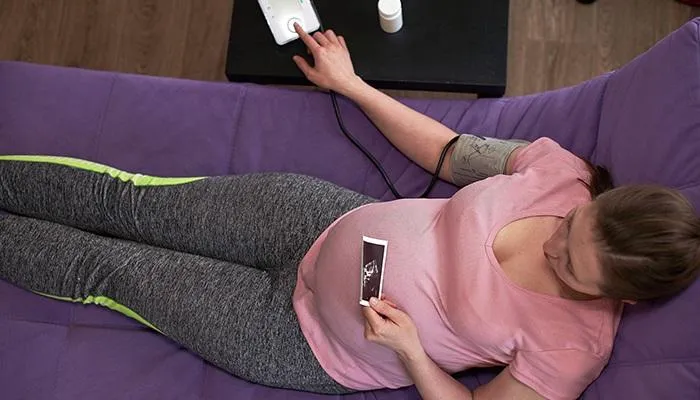High Blood Pressure During Pregnancy
March 4, 2020
High blood pressure during pregnancy can put the mother and the baby at risk. It can even cause complications during and after delivery. Fortunately, this is treatable as well as preventable. Also known as hypertension, high blood pressure is very common. It has become even more common during pregnancy. However, it is important to know that for the safety and health of your baby, your blood pressure should be controlled.
Causes of Hypertension
There can be several reasons why you are having high blood pressure during pregnancy. The most common reasons are:
- Not doing enough physical activity
- Being overweight or obese
- First-time pregnancy
- Pregnant at the age of more than 35
- Smoking
- Drinking alcohol
- Pregnant with more than one child
- Family history of hypertension
- Having an autoimmune disease like diabetes
- Pregnancy through assisted reproductive technology like IVF
Types of High Blood Pressure Conditions
1.Chronic Hypertension
This condition occurs when you have high BP before getting pregnant or within 20 weeks of pregnancy. Such women are at a higher risk of getting preeclampsia in the 2nd or 3rd trimester.
2.Gestational Hypertension
This condition occurs when you have high BP during pregnancy and there is not enough protein in your urine or you are having some other kidney or heart problems. It will be diagnosed either after the 20th week of pregnancy or when you are close to delivery. However, some women who have gestational hypertension during pregnancy might develop chronic hypertension in the future.
3.Preeclampsia/Eclampsia
This is a condition that occurs when a woman who had normal BP suddenly has high protein in her urine and develops high blood pressure. It can also be caused by other issues after the 20th week of pregnancy. Women with chronic hypertension are at risk of developing preeclampsia. This is an extremely common condition.
Some women with this condition can develop seizures. This medical emergency is known as eclampsia. So, it is important to look out for the symptoms of preeclampsia:
- A headache that just won’t go away
- Nausea
- Vomiting
- Changes in vision like seeing spots, blurry vision, or change in eyesight
- Swelling of hands or face
- Trouble breathing
- Sudden weight gain
- Pain in the upper stomach area
Some women with the condition do not have any symptoms of this condition. There are some conditions that put you more at risk for preeclampsia. So, if you have any of these, you need to take special care during pregnancy:
- First-time pregnancy
- Had preeclampsia in a previous pregnancy
- Became pregnant through IVF
- Chronic kidney disease or chronic High BP
- Family history of preeclampsia
- History of thrombophilia (increases the risk of blood clots)
- Pregnant with multiple babies
- Obesity
- Lupus (an auto-immune disease)
- Older than 49
- Have type 1 or type 2 diabetes
Complications caused by Hypertension
If you are suffering from hypertension during pregnancy, it can result in the following complications for you and your baby:
- Preeclampsia (for mother)
- Eclampsia (for mother)
- Stroke (this will lead to the need for labor induction and placental abruption)
- Preterm delivery (high blood pressure makes it difficult for the baby to get the required amount of nutrients and oxygen for growing)
- Low birth weight
What to do when you have Hypertension?
Before pregnancy
- Talk to the doctor regarding any health problems that you are having or any medications you have been taking. If you are planning to get pregnant, your doctor needs to know about all the medicines so that they can tell you which ones are safe.
- Eat healthily and perform physical activity regularly for keeping a healthy weight
During Pregnancy
- Use a home blood pressure monitor for keeping track of your BP at home.
- Make sure that you get early and regular prenatal care.
- Talk to your doctor about which medications are safe to take during pregnancy and which are not. It is important that you don’t start or stop taking any medications without consulting your doctor. This includes prescribed as well as over-the-counter medications.
- Eat healthy foods and try to maintain a healthy weight.
- If you are showing symptoms of preeclampsia or your blood pressure is more than usual, talk to your doctor.
After pregnancy
- If you had high BP during pregnancy, you will be at a higher risk of problems like stroke after the delivery. You have to pay attention to how you are feeling.
- If you see symptoms of preeclampsia after delivery, inform your doctor right away. You might be in need of emergency medical care.
NOTICE BOARD
CONTACT US
CONTACT US
 Book Appointment
Book Appointment


.svg)
.svg)
.svg)
.svg)








